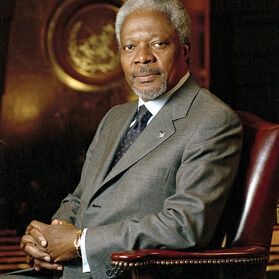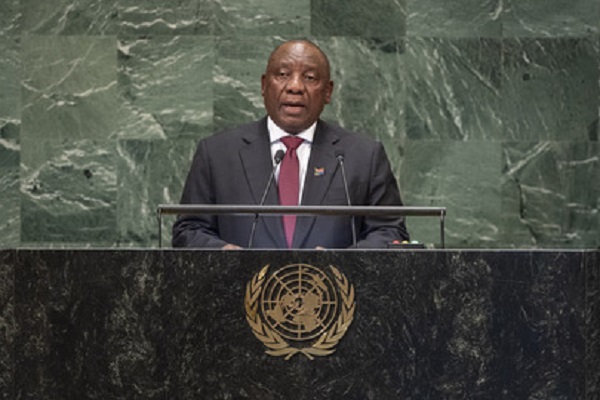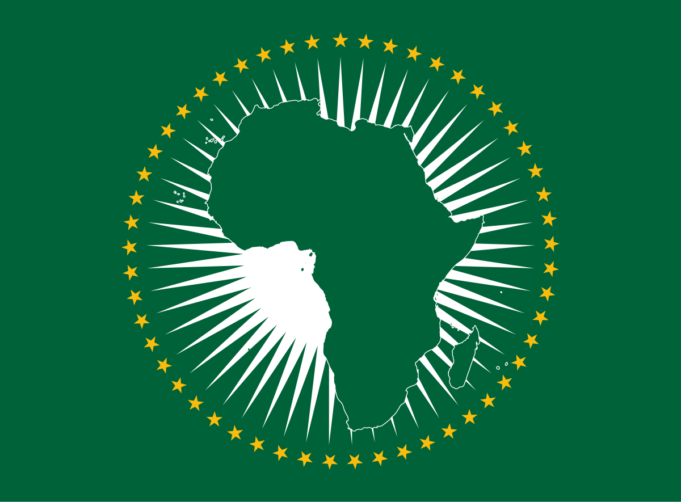African leaders over the years have repeatedly called for enlargement of the 15-member United Nations Security Council, the only UN body whose decisions are mandatory. Security Council resolutions have the power of international law and the council includes nations who hold permanent seats with the power to veto resolutions.

Through the African Union, leaders this year are again calling for reform and seats on the Security Council.
In 2015, UN Secretary General Kofi Annan of Ghana, the first African to serve as secretary general, said the Security Council must take in new permanent members or risk increasing irrelevancy on the international stage.
“I firmly believe that the council should be reformed: it cannot continue as it is. The world has changed and the UN should change and adapt. If we don’t change the council, we risk a situation where the primacy of the council may be challenged by some of the new emerging countries,” said Annan, who led the United Nations from 1997 to 2006.
Echoing Mr. Annan’s sentiments, during the 75th United Nations’ session, was South African president and African Union chair Cyril Ramaphosa and Nigerian president Muhammadu Buhari, who again made the call for African representation on the council.

Photo UN: John Isaac
“As we urge and strive for inclusion within our societies, we must also ensure inclusion prevails in our collective action as members of the International Community. Nigeria supports the expansion of the UN Security Council to reflect the diversity and dynamics of the 21st Century. Africa deserves permanent seats in the United Nations Security Council,” President Buhari said during his pre-recorded speech.
President Ramaphosa said, “On the 75th anniversary of the UN we repeat our call for greater representation of African countries on the Security Council and that this be taken up with urgency at the intergovernmental negotiations. It is only through a reform and an inclusive Security Council that we will be able to collectively resolve some of the world’s most protracted conflicts.”
African leaders’ arguments are not difficult to make. More than three-quarters of Security Council engagements are on African affairs, but the 54-nation continent only enjoys three non-permanent member seats without veto power, observed enca.com in a piece titled: “Ethiopia wants Africa fully represented on UN Security Council.”
The Security Council was created in 1946 by the winners of World War II. It’s comprised of 15 members, the United States, Great Britain, France, China and Russia are permanent members, while 10 non-permanent members serve for two years on a rotating basis. Critics of the council say it represents an international order that no longer exists. The permanent members make binding decisions concerning global issues.

Other critics say the powerful members of this policy-making body, which frequently uses its veto power to enhance its members’ individual and collective interests, is undemocratic. But it also raises a question, is this a case of the oppressed joining the oppressors in becoming permanent members, rather than seeking to fully reform the UN Security Council?
The group’s primary responsibility under the UN charter is for the maintenance of international peace and security. While other UN entities, including the General Assembly, make recommendations, the Security Council is the only body that makes decisions the 193 member states are obligated to accept and carry out.
The world’s largest diplomatic meeting, the UN General Assembly, didn’t happen in the traditional manner this year with large crowds, constant handshakes, kisses, and cocktail parties.
This year participating heads of state and diplomats, due to the coronavirus pandemic, were in front of screens making speeches and discussing the world’s most pressing challenges.
Only a few of the sideline events that have made the assembly a signature gathering happened.
“The Covid-19 pandemic is a crisis unlike any in our lifetimes, and so this year’s General Assembly session will be unlike any other, too,” said host UN Secretary-General Antonio Guterres at a press conference.
The United Nations General Assembly, the main deliberative, policymaking, and representative organ took place as the UN celebrated 75 years of existence.
The African Union representative to the United Nations also made the case for permanent representation on the Security Council.
“As you are aware, Africa has a common position on the UNSC reform. Africa has consistently made the case for representation in the ‘Permanent’ category of the Council. Also, there is a need for more African representation in the ‘non-Permanent’ category in order to achieve true and meaningful reform of the UN Security Council. Equitable geographical representation in line with the principles, objectives and ideals of the UN Charter can only lead to a fairer and more equitable world,” said Fatima Kyari Mohammed, the Permanent Observer and Head of Mission of the African Union to the United Nations.
Another argument for permanent Security Council representation for Africa was made by senior researcher at the Institute for Security Studies Gustavo de Carvalho.
Responding to a recent DW News Africa reporter’s question, “Why is there no interest in reforming the Security Council … African leaders have been calling for a permanent seat on the council for years?” De Carvalho responded, “To some extent permanent members on the Security Council sit in a very comfortable position where the status quo is good for them. But in a situation where the role of multi-lateral institutions is a threat and there is a great divide among great powers, if the UN is unable to adapt the UN is increasingly becoming more irrelevant.”
De Carvalho added, “This is not just coming from African states. This is also coming from places like Japan, Germany, India or Brazil. Because for them at 75 years old it’s extremely important to understand not only what can the UN Security Council do for its own permanent members, but how can we adapt to global realities among saying the UN is a relevant international organization.”
A recent piece “Africa can become more influential in the UN Security Council” by De Carvalho and Senior Policy Analyst Daniel Forti makes the argument for African representation: “Africa is numerically significant at the UNSC: in 2018, over 50 percent of UNSC meetings, 60 percent of its outcome documents, and 70 percent of its resolutions with Chapter VII mandates concerned African peace and security issues. African states comprise nearly 28 percent of the UN’s overall membership, providing significant regional political backing to the A3 (bloc of three elected African members of the UNSC). Niger, South Africa and Tunisia are the A3 members in 2020; either Djibouti or Kenya will replace South Africa from January 2021.”
Since the creation of the African Union the A3 has grown in stature.
“A3 members alone have limited influence on the UNSC. But a unified position on African files–especially when informed by AU Peace and Security Council (PSC) decisions–provides legitimacy, credibility and leverage in A3 engagements with other council members, and can influence outcomes,” wrote De Carvalho and Forti. “In a sign of such unity, the A3 in 2019 delivered 16 joint statements in the UNSC during both country-specific and thematic debates.”
Concluding with a hopeful future, the authors wrote: “With its ambitious mandate and the challenging geo-political dynamics that must be navigated, the A3’s evolution into a coherent political bloc within the UNSC is laudable.
“African states must now take the next step to consolidate their influence. That requires remaining unified, principled and closely linked to Addis Ababa. With challenging times ahead for the UNSC, the A3’s leadership on Africa-related decisions is key for conflict prevention and crisis management.”
Follow @jehronmuhammad on Twitter.













